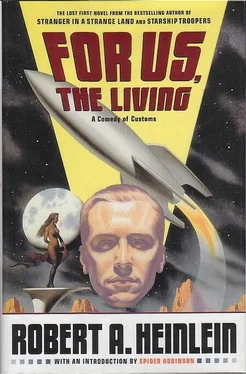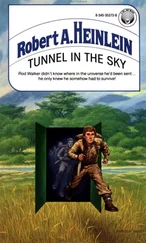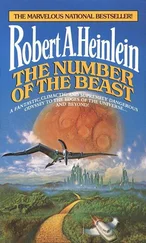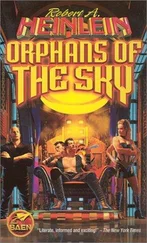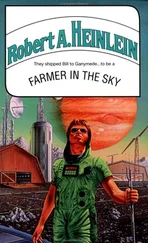Robert Heinlein - For Us, The Living
Здесь есть возможность читать онлайн «Robert Heinlein - For Us, The Living» весь текст электронной книги совершенно бесплатно (целиком полную версию без сокращений). В некоторых случаях можно слушать аудио, скачать через торрент в формате fb2 и присутствует краткое содержание. Жанр: Фантастика и фэнтези, на английском языке. Описание произведения, (предисловие) а так же отзывы посетителей доступны на портале библиотеки ЛибКат.
- Название:For Us, The Living
- Автор:
- Жанр:
- Год:неизвестен
- ISBN:нет данных
- Рейтинг книги:3 / 5. Голосов: 1
-
Избранное:Добавить в избранное
- Отзывы:
-
Ваша оценка:
- 60
- 1
- 2
- 3
- 4
- 5
For Us, The Living: краткое содержание, описание и аннотация
Предлагаем к чтению аннотацию, описание, краткое содержание или предисловие (зависит от того, что написал сам автор книги «For Us, The Living»). Если вы не нашли необходимую информацию о книге — напишите в комментариях, мы постараемся отыскать её.
For Us, The Living — читать онлайн бесплатно полную книгу (весь текст) целиком
Ниже представлен текст книги, разбитый по страницам. Система сохранения места последней прочитанной страницы, позволяет с удобством читать онлайн бесплатно книгу «For Us, The Living», без необходимости каждый раз заново искать на чём Вы остановились. Поставьте закладку, и сможете в любой момент перейти на страницу, на которой закончили чтение.
Интервал:
Закладка:
"I said that government is a factor. It is, if for no other reason than through its police powers it makes the environment safe to work in. Without it no one could accumulate wealth and the creation of wealth on a large scale would not be feasible. Which is another way of saying that individuals acquire wealth only at the sufferance of the community and the community may require any tribute necessary to promote the general welfare. The government performs many other useful services too numerous to mention, but you see my point.
"Land and raw materials are obvious factors in the production of wealth. In the simplest economy labor must have something to fabricate and some place to stand on in order to produce wealth.
"The last factor is invention or technique. I mean not only new inventions now held by patent, but also all useful accumulation of knowledge from the stone age to date. Although wealth can be created without, or with very little of it, it is the greatest factor of all. You need only consider any common article to be convinced of it. Take a pair of shoes. In a modern shoe factory the production is around six hundred pairs of shoes per man per day. By figuring in raw material and capital costs it drops only to about four hundred pairs per laborer per day. Does one man make four hundred shoes per day? Put him at a cobbler's bench and assume him to be an experienced cobbler, yet he will do well to turn out one pair. Is it management? Management is important, for a poor manager will reduce production by perhaps 50%, yet the factory still turns out enormously more than a number of hand cobblers equal to its employees could do. Obviously the factor which produces this enormous multiplication of wealth is technical knowledge, the contribution of the creative inventor and creative artist. That is why we reward them so highly today. There is one outstanding characteristic of the creator-discoverer. His work lives after him and is cumulative in its effect. We owe more to the unknown genius who invented the wheel and axle than we do to all the workers now on earth. Furthermore, inventors stand on the shoulders of all their predecessors. No modern invention would be possible without the work done by Bacon, Da Vinci, Watt, Faraday, Edison, et cetera without number."
"Yes, that is evident but what of it? I can't see that the work of those men justifies laziness today."
"These men are our forefathers. They have left to each one of us the most valuable inheritance possible, other than the good earth and life itself. To each one of us, mind you, lazy and industrious alike. To refuse your brother who prefers not to work his share in production for moralistic reasons of your own devising is to claim for yourself that which you have not earned and have no right to."
Perry looked baffled but unconvinced. "Granting that what you say is true—it is, I suppose—nevertheless it takes labor to apply this heritage of technical knowledge. Why shouldn't every able-bodied man have to contribute equally to that labor?"
"But surely, Perry, you can see that there is not enough drudgery in this world to go around. The machines have released us from the curse of Adam. How can all of us crowd into the control stations of the machines? We have short hours, naturally, and most machine tenders and such retire at an early age, but it isn't practical to change shifts every fifteen minutes nor to train new men every few weeks. Would you have men dig holes and fill them up again for the sake of work itself? Would you destroy the machines and restore the cobbler's bench? There is always creative work to be done; there is no limit to that, but there is no way to punch time clocks on it either. If a man has creation in his system, all we can do is to give him leisure in which to develop it. Tell me, have you seen very many idle people?"
"No, I haven't as yet."
"You won't. The urge to work exists in more than ninety per cent of the population. Free him from drudgery and he putters in the garden, in a workshop, learns to draw, tries to write poetry, studies, goes into politics, invents, sings, devises salad dressings, climbs mountains, explores the ocean depths, and tries to fly to the moon. Few are those who sit in the sun and whittle."
"Say, are they really trying to reach the moon?"
"Yes, surely. But I want to give you an illustration of the current situation. Suppose in your day seven men own a big car together and all wish to drive from San Francisco to New York. John is crippled and can't drive. Joe is too young to drive. Jack doesn't know how to drive. Jake is a good driver but hates to drive, being of a nervous temperament. Jep is just plain lazy and prefers to watch the scenery, but Jim and George are both good drivers and don't mind doing it. Of course only one person can drive at a time. You propose that they all take turns at the wheel, barring the cripple and the child. Isn't it more reasonable to pay the two drivers for their services and let everyone reach New York in comfort? That is what we do today. Those who perform the drudgery of the nation are paid—and well-paid—in addition to their dividend from their inheritance."
Perry threw up his arms in mock surrender. "Enough. Enough. Frankly, I'm not convinced yet, but you certainly can make out a case."
Davis shrugged his shoulders. "Personally I'm not interested in moralistic reasons. The present system is the one the American people have chosen to serve them at this period of their development. It suits my temperament so I don't try to change it. If you want another you now know how to devise another which will be economically feasible. Then you are free to try to persuade the country to adopt it. You might even try to persuade a state. Several of the states have modifications."
"So I gathered. How do they work?"
"Well, Wisconsin has very high income taxes and pays a state dividend in addition to the Federal dividend. They have a nearly complete socialism with most business run co-operatively. It seems to suit them but I find it a dull pace. However, let me mention the practical advantages of the blanket dividend as compared with your moralistic proposal. In the first place it ensures high wages, because men who are free from economic necessity won't work for sweatshop wages. For the same reason it ensures good working conditions. Unions are no longer necessary. Those that remain have turned into fraternal organizations rather than battalions in class warfare. In the second place it ensures social security for everybody all the time and thereby makes government much simpler. In your day the social service bureaucracy was growing by leaps and bounds. We don't need social service workers where poverty is unknown. And it saves private citizens from the insufferable buttinsky-ness of social work, the prying catechisms that determine the 'deserving' poor. If for no other reason the dividend is desirable because it ended the incredible red tape and indignities of your old system of relief, and welfare work, and private charity."
"But see here, the dividend will hardly pay for operations and sickness. Suppose the idlers fall sick?"
Davis looked surprised. "Hadn't you gathered that health service is free? It obviously has to be. The community can't afford to let anyone be sick for fear of contagion and unsocial mal-adjustment. If medicine hadn't been socialized we couldn't have stamped out syphilis and gonorrhea for example, and our present social standards couldn't have developed. Medical men are public servants and among the most highly paid in the community."
"Doesn't that tend to make medicine un-enterprising and give it a tendency to fall into a rut?"
"Did it for the army and navy in your day? Before your time they were private professions, you will remember. However, a physician need not be a public servant. He can hang out his shingle if he likes. But with higher returns for public practice, plus every opportunity for research with unlimited facilities and no economic restrictions on the expense of treatment, practically all of the best ones prefer to work for the government."
Читать дальшеИнтервал:
Закладка:
Похожие книги на «For Us, The Living»
Представляем Вашему вниманию похожие книги на «For Us, The Living» списком для выбора. Мы отобрали схожую по названию и смыслу литературу в надежде предоставить читателям больше вариантов отыскать новые, интересные, ещё непрочитанные произведения.
Обсуждение, отзывы о книге «For Us, The Living» и просто собственные мнения читателей. Оставьте ваши комментарии, напишите, что Вы думаете о произведении, его смысле или главных героях. Укажите что конкретно понравилось, а что нет, и почему Вы так считаете.
